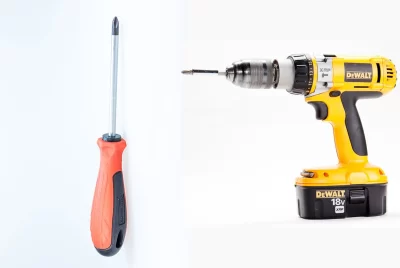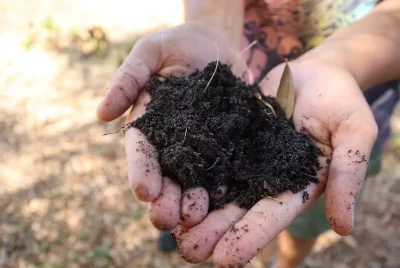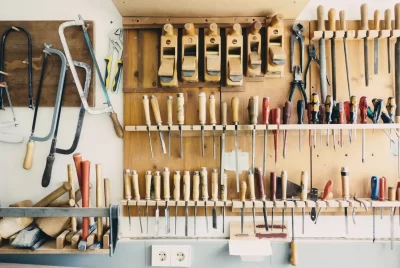How to Use a Garden Hoe: Full Guide
Gardening has always held a special place in my heart, and one tool that has become indispensable in my gardening journey is the humble hoe. Whether you’re a seasoned gardener or a novice, understanding the proper techniques and choosing the right hoe for the job can make a significant difference in the health and productivity of your garden.
Introduction
Gardening, for me, is not just a hobby; it’s a therapeutic escape that connects me with nature. One tool that has become my trusted companion in the garden is the hoe. In this article, we’ll delve into the art of using a hoe effectively, exploring different types, techniques, and sharing personal insights to help you cultivate a flourishing garden.
Types of Hoes
Draw Hoe

The draw hoe, with its flat blade, is excellent for chopping through soil and breaking up clods. Its versatility makes it a staple for various gardening tasks.
Scuffle Hoe

Known for its push-and-pull motion, the scuffle hoe is perfect for weeding and cultivating. Its razor-sharp blade cuts through weeds with ease.
Warren Hoe

The warren hoe, resembling a heart-shaped paddle, is ideal for precise weeding around plants. Its unique design allows for accuracy in tight spaces.
Dutch Hoe

Replacing the mattock hoe, the Dutch hoe has a sharp, flat blade, making it suitable for slicing weeds just below the soil surface. It’s efficient for both weeding and soil cultivation.
Choosing the Right Hoe for the Job
Selecting the right hoe depends on various factors. Consider your soil type, garden size, and the specific tasks at hand. Personally, I’ve found the draw hoe to be a versatile all-rounder, but let’s explore which hoe suits your needs best.
Proper Hoe Technique
Using a hoe isn’t just about brute force; it’s about finesse. Ensure proper body posture and positioning to avoid strain. When in doubt, think of it as a dance – a rhythmic movement that benefits both you and your garden.
Preparing the Soil
Loosening the soil is a crucial step in gardening success. With your chosen hoe, follow these steps to prepare the soil effectively, creating a conducive environment for plant growth.
- Marking Rows: Use the hoe to mark straight rows for planting, ensuring proper spacing.
- Breaking Clods: Employ the hoe to break up large clods of soil, promoting a finer, aerated texture.
- Mixing Amendments: Blend in organic matter or fertilizers evenly using the hoe, enhancing soil fertility.
Weeding with a Hoe
Weeding can be a tedious task, but with the right hoe and technique, it becomes a breeze. Here’s how to wield your hoe against the relentless advance of weeds.
- Choose the Right Hoe: For widespread weeding, opt for a scuffle hoe. For precision, such as near delicate plants, use a warren hoe.
- Timing is Key: Weed when the soil is slightly moist for easier removal, and young weeds are just emerging.
- Angle Matters: Hold the hoe at a shallow angle to slice through weeds just below the surface, preventing their return.
Cultivating and Planting with a Hoe
A hoe is not just for weeding; it’s a versatile tool for cultivating and planting as well. Here’s how to make the most of it.
- Creating Furrows: Use the hoe to dig furrows for planting seeds or seedlings, maintaining even spacing.
- Cultivating Around Plants: Gently cultivate the soil around established plants to prevent weed competition and improve water absorption.
Maintaining Your Hoe
To ensure your hoe remains a trusty ally in the garden, a little maintenance goes a long way.
- Cleaning: Remove dirt and debris after each use to prevent rust and maintain blade sharpness.
- Sharpening: Regularly sharpen the hoe blade with a file or sharpening stone for efficient cutting.
The Best Hoes on the Market
When it comes to choosing a hoe, the market offers a variety of options. Here are some top picks based on user reviews and personal experiences.
- Ames True Temper Action Hoe: A favorite for weeding and cultivating, this hoe’s sharp blade gets the job done effortlessly.
- Prohoe Rogue Garden Hoe: Known for its durability, this tool is ideal for heavy-duty tasks like digging and cutting.
Personal Garden Success Stories
In my gardening journey, the hoe has been instrumental in transforming my backyard into a thriving oasis. One summer, after diligently using the draw hoe for soil preparation, the harvest was bountiful, and my plants flourished. It’s these personal success stories that make gardening a rewarding endeavor.
Tips for Beginners
If you’re new to hoeing, fear not! Everyone starts somewhere. Here are some tips to ease your journey into the world of hoeing:
- Start Small: Begin with a smaller garden plot to get the hang of hoeing without overwhelming yourself.
- Learn from Mistakes: Don’t be discouraged by initial challenges. Every mistake is a lesson in disguise.
Environmental Impact
Gardening practices influence the environment, and choosing the hoe as your gardening companion comes with its eco-friendly perks.
- Reduced Chemical Usage: By effectively weeding with a hoe, you can minimize the need for chemical herbicides.
- Sustainable Soil Management: Hoeing promotes natural soil aeration and reduces dependence on heavy machinery.
Community Engagement
Gardening is a communal activity, and engaging with fellow enthusiasts can enhance your experience.
- Local Gardening Clubs: Joining a local gardening club provides opportunities to share knowledge and learn from others.
- Online Communities: Participate in online forums to connect with a global community of gardeners, exchanging tips and advice.
Common Mistakes to Avoid
While hoeing is a relatively straightforward task, common mistakes can hinder your progress. Be aware of these pitfalls:
- Overexertion: Avoid excessive force when hoeing; let the tool do the work.
- Ignoring Maintenance: Neglecting hoe maintenance can lead to reduced efficiency and a shorter lifespan.
Conclusion
Using a hoe isn’t just about tilling soil; it’s about cultivating a connection with your garden. With the right hoe, proper technique, and a dash of enthusiasm, you can transform your outdoor space into a flourishing haven of greenery. Happy hoeing!
Frequently Asked Questions
Q1. Can I use any hoe for weeding, or are there specific types for this task?
While many hoes tools can be used for weeding, a scuffle hoe is particularly effective due to its push-and-pull motion.
Q2. How often should I sharpen my hoe’s blade?
Regular sharpening is essential, but the frequency depends on usage. Aim for sharpening every 10-15 hours of hoeing.
Q3. Are there hoes suitable for container gardening?
Yes, smaller hoes like the hand hoe or circle hoe are perfect for container gardening.
Q4. Can I use a hoe in rocky soil?
Hoes with sturdy blades, like the Warren hoe or Dutch hoe, can be effective in rocky soil, but extra care is needed to avoid damage.
Q5. Is hoeing environmentally friendly?
Yes, hoeing is eco-friendly as it reduces the need for chemical herbicides and promotes sustainable soil management.
Summary
Explore the art of hoe gardening in this insightful guide, catering to both beginners and seasoned enthusiasts. From choosing the right hoe for specific tasks to mastering proper techniques like soil preparation and weeding, the article combines practical advice with personal anecdotes, creating an engaging narrative. Environmental benefits, community engagement tips, and a reminder of the transformative power of hoeing add depth to this concise, yet comprehensive, guide. Whether you’re avoiding common mistakes or seeking tips for a flourishing garden, this article is your key to a fulfilling hoeing experience.




